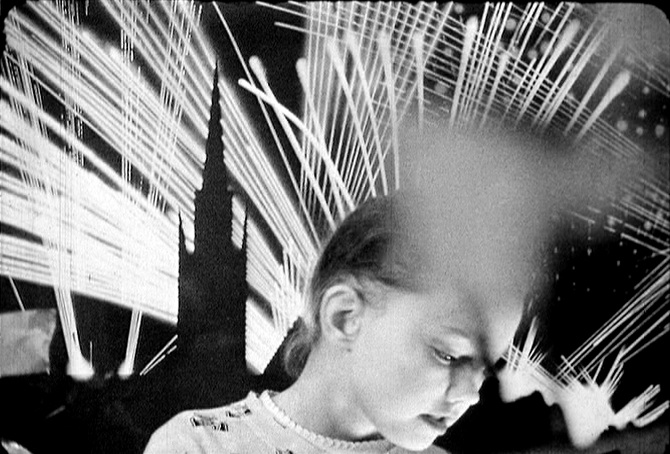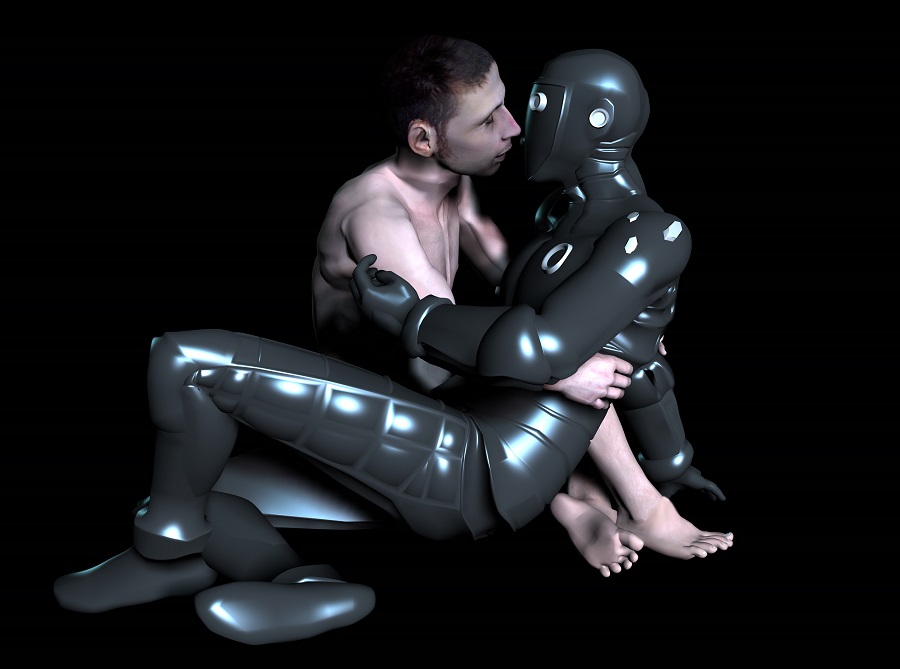March 23rd, 2014
@ UT Union Theater (map)
8pm
Free!
The Mad Stork Cinema presents its first screening of the year! Ontological Mystery Cinema surveys works of video artists pondering strange, post-apocalyptic, techno-centric and toxic future realities. With work by Bobby Abate, Steven Matheson and featuring Leslie Thornton’s legendary Peggy and Fred in Hell!
Funded by The University of Texas Co-op.
Sylvania by Bobby Abate
10 min / digital / sound / 2005
The set of Bewitched is a spiritual battleground of overlapping zones–human, alien and cyborg–in Bobby Abate’s latest ontological mystery film.
“In Sylvania, we find ourselves in the interiors of the 1960s television series Bewitched, a space like an implanted memory now occupied by spirographic mandalas, a prowling alien (protector or intruder?), a naked woman (asleep or dead?). An unshaven figure who might be the video maker or his double looms like a cyborg in nebulous space. His movements make us wonder if he is an apprentice to the robot-like figure, or the puppet master of the scene, a paradox like the role of television itself–reflective, instructive and/or indoctrinating.” –Mark MacElhatten
Apple Grown in a Wind Tunnel by Steve Matheson
30 min / digital / sound / 2000
This absurdist, microscopic film noir follows the activities of an underground network of ill people, desperate to create alternative methods of self-care in a world where natural resources are disappearing. While examining the meaning of health, disease, and well-being in the post-industrial world, Apple Grown In Wind Tunnel imagines the development of a culture at the margins, linked by illicit radio broadcasts, toxic waste sites, the highway, and ultimately by the overwhelming desire to find a cure.
“To the immune system in the 21st Century, here’s a sublime video elegy: a tale of illness, and grass-roots conjuring against the contemporary malaise. This riveting toxic-road-movie seeps and slouches forward in search of a cure.” —Craig Baldwin
Peggy and Fred in Hell: The Prologue by Leslie Thornton
20 min / digital / sound / 1985
Peggy And Fred In Hell is one of the strangest cinematic artifacts of the last 20 years, revealing the abuses of history and innocence in the face of catastrophe, as it chronicles two small children journeying through a post-apocalyptic landscape to create their own world. Breaking genre restrictions, Thornton uses improvisation, planted quotes, archival footage and formless timeframes to confront the viewer’s preconceptions of cause and effect.
“At its most distinctive, as in the endless and eternal Peggy And Fred In Hell cycle, Thornton’s work wanders past the medium’s limits and finds the medium’s origins.” —Bill Horrigan, Wexner Center
Peggy and Fred in Kansas by Leslie Thornton
11 min / digital / sound / 1989
Peggy and Fred, sole inhabitants of post-apocalyptic Earth, weather a prairie twister and scavenge for sense and sustenance amid the ruined devices of a ghosted culture. The improvised and playful dialogue of the children provides a key to understanding the tape; their distracted sense of make-believe floats between realities, between acting their parts and doing what they want—patching together identities that, like fidgeting children, refuse to stand still.
Peggy and Fred and Pete by Leslie Thornton
22 min / digital / sound / 1988
Peggy and Fred meet up with Peter the Penguin, to once again make their way through the fragmentary remains of 20th-century American culture. They fashion a tumultuous, arbitrary world that teeters dangerously on the edge of nonsense and oblivion. The makings are familiar: technologies, accoutrements, and stories of our culture, leveled against an endless and disorderly horizon. As a commentary on the state of cultural messages and meaning, Thornton’s work outlines a “poetics of dystopia” that has all the ambient charm of a bomb shelter, preserving random cultural elements for future generations.

